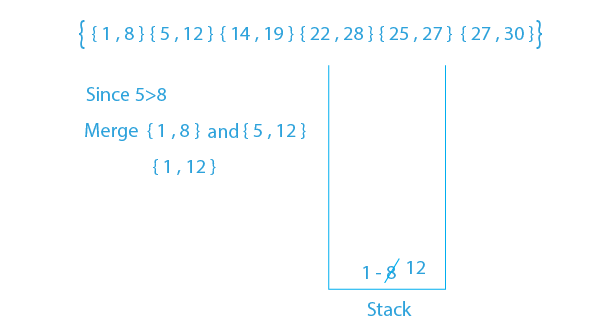Problem Statement
You are given an array of intervals where intervals[i] = [start_i, end_i]. Merge all overlapping intervals and return an array of the non-overlapping intervals that cover all the intervals in the input.
Example
Input:
intervals = [[1,3],[2,6],[8,10],[15,18]]
Output:
[[1,6],[8,10],[15,18]]
Explanation:
[1,3]and[2,6]overlap, so they are merged into[1,6].
Approach
- Sort the intervals by the start time.
- Initialize a list to hold merged intervals.
- Loop through the intervals:
- If the current interval overlaps with the previous, merge them.
- Else, add the current interval as is.
Java Code
import java.util.*;
public class MergeIntervals {
public static int[][] merge(int[][] intervals) {
if (intervals.length <= 1) return intervals;
// Sort by start time
Arrays.sort(intervals, (a, b) -> Integer.compare(a[0], b[0]));
List<int[]> merged = new ArrayList<>();
int[] current = intervals[0];
merged.add(current);
for (int[] interval : intervals) {
int currentEnd = current[1];
int nextStart = interval[0];
int nextEnd = interval[1];
if (currentEnd >= nextStart) {
// Merge
current[1] = Math.max(currentEnd, nextEnd);
} else {
// No overlap
current = interval;
merged.add(current);
}
}
return merged.toArray(new int[merged.size()][]);
}
public static void main(String[] args) {
int[][] intervals = { {1,3}, {2,6}, {8,10}, {15,18} };
int[][] result = merge(intervals);
System.out.println("Merged Intervals:");
for (int[] interval : result) {
System.out.println(Arrays.toString(interval));
}
}
}
Test Output
Merged Intervals:
[1, 6]
[8, 10]
[15, 18]
Time and Space Complexity
- Time Complexity:
O(n log n)due to sorting. - Space Complexity:
O(n)for the merged list.
